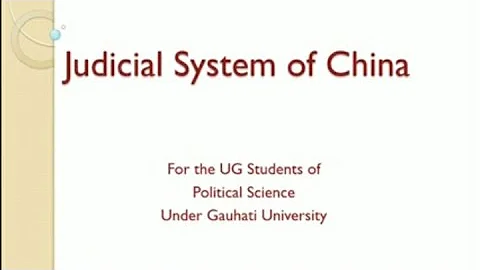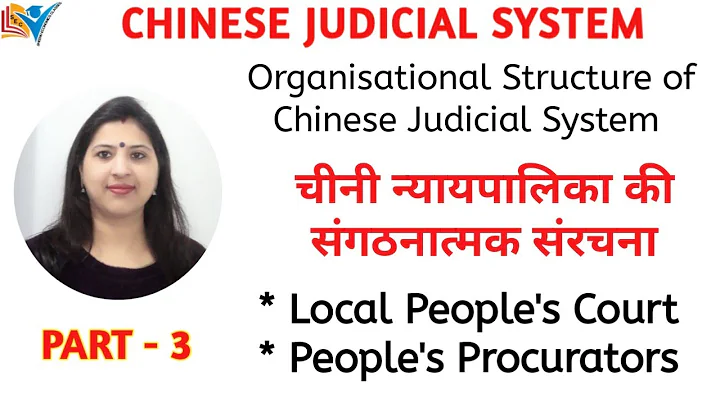"Systems thinking" should become the core practice of judges
- A brief discussion on the system concept in judicial adjudication
The third session of National trial business expert , Zhejiang Provincial Higher People's Court
Member of the Judicial Committee and Director of the Trial Management Division
Chen Zengbao
Since the 18th National Congress of the Communist Party of China, General Secretary Xi Jinping has repeatedly emphasized the use of "systemic concepts" and "overall thinking" to coordinate and advance various undertakings of the party and the country from an overall perspective and with a far-sighted strategic vision. Especially at the Fifth Plenary Session of the 19th Central Committee of the Communist Party of China, General Secretary Xi Jinping made an important exposition from the perspective of methodology, profoundly explaining the "basic" status of the system concept relative to other ways of thinking and working methods. These important expositions and instructions provide guidance and direction for the high-quality development of various work of the people's courts, and also provide specific methodological guidance and action guides for individual judges in law enforcement and handling of cases. According to the author’s experience, under the new situation, the most critical, fundamental and important thing to learn deeply and thoroughly implement Xi Jinping’s Thought on the Rule of Law is to master the fundamental positions, viewpoints and methods that run through it, and to use systematic concepts to strengthen the summary of practical experience and thinking The refinement of methods has made "systems thinking" the core practice of judges' professional abilities in the new era.
1. The "systemic concept" demonstrates the distinctive characteristics and scientific quality of Marxist rule of law theory
The systematic concept, as an important thinking method of Xi Jinping's rule of law thought, fully demonstrates the scientific nature, practicality and truth of Marxist rule of law theory.
First of all, the system concept, as an important content and way of thinking of materialist dialectics , profoundly embodies the scientific nature of Marxism. The so-called system concept of refers to the way of thinking that uses the viewpoints and methods of system theory to understand things and strive to optimally deal with problems. Based on the "three major discoveries" in the field of natural science in the 19th century and the systematic understanding they established, Marx and Engels used materialist dialectics to profoundly analyze the overall relationship between man and nature, and between man and man. They believed that the world is not only a "process of movement and development" Collection", and there are internal logical connections in an "almost systematic form" within and between various fields. In the classic work "Das Kapital", Marx started from the element form of commodity, the wealth of capitalist society, and used economic categories to reveal the social relations and their evolution behind the commodities, and constructed the entire capitalist economic system. theoretical model. The Marxist system concept opened up the modern system method in social science, providing a powerful tool for mankind to deal with various "complexity" challenges in the surrounding world, and laying a scientific methodological foundation for the study of rule of law theory.
Second, the system concept is an important ideological method and working method that our party has always adhered to and continuously enriched and innovated in the process of leading the Chinese revolution, construction, and reform. In March 1949, Mao Zedong made a systematic elaboration on "learning to 'play the piano'" and pointed out that the movements of the ten fingers "must have rhythm" and "cooperate with each other"; since then, his article "On Ten Major Relationships" has become the application of systematic concepts A model for understanding and dealing with economic and social development issues. Comrade Deng Xiaoping, known as the chief architect of China's reform and opening up, has always understood, deployed and promoted the construction of socialism with Chinese characteristics as a long-term and complex systematic project. As our country enters a new era, the Party Central Committee with Comrade Xi Jinping as the core clearly stated for the first time in the party's literature that the system concept is an important principle that must be adhered to and followed for the economic and social development of our country's "14th Five-Year Plan". From the perspective of "principle" It highly requires "strengthening forward-looking thinking, overall planning, strategic layout, and overall advancement", and profoundly reveals the importance of dialectically handling the major relationships between the present and the future, the overall situation and the local area, strategy and tactics, etc., for the comprehensive construction of a modern socialist country. It is of great significance. It can be seen that the current Party Central Committee’s understanding and grasp of the laws and regulations of socialist construction have reached a new height and realm.
Third, the system concept, as an important thinking method of Xi Jinping’s rule of law thought, embodies the distinctive characteristics and scientific quality of Marxist rule of law theory. Xi Jinping’s thought on the rule of law is the unity of stance, viewpoint and method. “People-centered” is its fundamental stance, “fairness and justice” is its core value, and “system concept” is the scientific methodology that runs through it. General Secretary Xi Jinping has always adhered to Marxist materialist dialectics and vividly embodied the "systemic concept" in the field of rule of law, and implemented the concepts and methods of "overall considerations, grasping key points, and overall planning" in the great systematic goal of comprehensively governing the country according to law. In the works. A large number of studies have shown that Xi Jinping’s thought on the rule of law connects history and reality, connects the international and domestic, combines theory and practice, and provides scientific answers to major theoretical and practical issues in comprehensively governing the country according to law. It contains distinctive strategic thinking on the rule of law, historical thinking on the rule of law, and dialectical thinking on the rule of law. A series of important thinking methods such as thinking are the vivid practice of Marxist "system concept", "system thinking" and "system method". In January 2021, General Secretary Xi Jinping specifically pointed out in his instructions on political and legal work that "more attention should be paid to systemic concepts, legal thinking, and strong foundation orientation" to further promote the high-quality development of political and legal work. As the famous Chinese jurist Professor Zhang Wenxian pointed out in the article "The systematic concept of coordinating the overall situation is the distinctive feature of Xi Jinping's rule of law thought", in Xi Jinping's rule of law thought, systematic concepts, systematic thinking and systematic methods have always been its distinctive scientific methods.
2. The effective realization of judicial justice requires the method principle of "system concept"
The core of the system concept is the holistic view, that is, "considering and solving problems as a whole" proposed by Qian Xuesen, which is embodied in the overall concept, overall grasp, and overall planning Taking into account specific methodological principles. In the legal field, the rational understanding, judgment standards and effective realization of judicial justice are inseparable from the guidance, support and application of "system concepts".
First, adhere to the system concept and deeply grasp the spiritual connotation and goals and tasks of "judicial justice". A fair judicial decision is certainly expected by the parties involved in the case. However, for thousands of years, the definition and connotation of justice have never reached a unified conclusion. Is the so-called judicial fairness an objective standard or a person’s subjective perception? In this regard, only by being guided by the system concept, overcoming the pure business point of view, and incorporating the judicial trial of the case into the multi-dimensional perspective of law, society, and the people can we give a scientific and rational answer. Legal psychology research shows that although justice is based on rigid laws, the power of justice often comes from flexible emotional support. The people's judgment of judicial activities is closely related to the degree of fairness perceived by individuals. Judicial justice is not an abstract theory or empty requirement, nor is it a metaphysical talk. It is an objective existence that is accumulated from individual cases, can be truly felt, and is widely recognized by society. Therefore, all judicial organs must improve their work around the judicial goal of “strive to make the people feel fairness and justice in every judicial case” proposed by General Secretary Xi Jinping, and focus on comprehensive, systematic, and in-depth consideration of the impact on the people’s opinions on justice. The various factors that form the "sense of fairness in individual cases" can be used to solve various deep-seated problems that affect judicial fairness and restrict judicial capabilities in a targeted manner, so that the people can truly feel that fairness and justice are around them in the handling of individual cases.
Second, adhering to systematic thinking and fully following the limited rationality, social rationality and ecological rationality of human decision-making fully demonstrate the practical rationality of judicial decisions and are consistent with the scientific principles of legal methodology. The value of judicial judgment lies in arriving at the "best answer" for case handling. However, highly abstract legal provisions do not provide ready-made answers to specific case resolutions, which determines that persistence and compliance with systematic thinking have become an inevitable part of the judges' judicial case handling process. This is a thinking construction process that takes "system thinking" as its connotation and "problem solving" as its foundation. Systems thinking first recognizes human limited rationality. Although the law is an institutional design based on human rationality, when it is applied in judicial practice, it still shows limitations in aspects such as fact determination, legal application, and procedural operation.Therefore, judicial adjudication should focus on finding the “best option” among the many possible solutions in practice, and discover the truth of case resolution based on human limited rationality. Systematic thinking should also fully reflect social rationality, requiring judges to take into account social, economic and other factors when making judgments in accordance with the law, and achieve an overall balance between illegal acts and judgment conclusions. Systems thinking also embodies ecological rationality, that is, when a judge “thinks systems”, his judgment and decision-making are the product of the connection between what he is thinking about in his mind and the past and current natural environment. The combination of bounded rationality, social rationality and ecological rationality is a perfect interpretation of systematic concepts and realistic rationality in judicial adjudication, and is also the proper meaning of judicial methodology.
Third, adhere to the combination of supply and demand, take into account the "institutional factors" and "human factors" in justice, and comprehensively grasp the judgment standards and ways of realizing "judicial fairness". According to the understanding of traditional judicial methodology, "judicial fairness" should be related to the perspective and standards of the judge's professional group, that is, based on the judge's position, giving a fair ruling to the parties to the case. However, according to the new perspective of systems thinking, the realization of judicial justice should not only follow the traditional judicial methodology and examine the cases and parties from the standpoint and standards of the "justice", but also be related to the perspective and standards of the public, accepting the "justice" "The test of "fairness or not". This change in perspective from "the judge" to the "justified" means that the judiciary must adhere to the people-oriented approach, pay equal attention to substantive justice and procedural fairness, take into account the legal standards, social standards and psychological standards of the judgment, and pay close attention to the parties' "sense of justice". ” is formed to seek to maximize social effects within the scope of the law. In practice, adhering to strict administration of justice and adhering to the principle of fairness are undoubtedly the basic principles for judges to carry out various judicial activities. Taking psychological standards into consideration means adhering to the premise of adhering to legal standards, advocating that the judicial process of handling cases should always keep the people in mind, stand firmly on the people's stand, proactively discover the legitimate expectations of the people for justice in different eras, and strengthen the judicial process. Common factors that may affect the people's perception of justice, such as legal interpretation, humanistic care, efficiency and convenience, openness and transparency, and relief and recovery, shall be taken into account throughout the entire trial and implementation process to effectively prevent the "idling of procedures" in cases and improve the "source resolution" of conflicts and disputes. The effectiveness of "substantial solutions" and "one-time solutions" ensures the people's sense of recognition and gain from the judiciary.
3. Let "systems thinking" become the core practice of judges in the new era
In the period of social transformation , the dispute handling in people's courts has become complex and diversified. In addition to being based on basic rationality and conscience, judges also need to improve their "systems thinking" capabilities when making decisions according to law. The improvement of "systems thinking" ability depends on both long-term self-cultivation and effective external support. As far as the self-cultivation of individual judges is concerned, the key is to grasp the following three points:
First, we must enhance overall awareness and fully grasp the essence of "system thinking". always maintains a state of study and concentration, improves political sensitivity, firmly establishes a holistic view, consciously develops the habit of looking at problems from an overall and systematic perspective, is good at thinking and positioning individual cases in the overall work of the party and the state, and uses case handling role in the system and sublimate its value and demonstrate mission responsibility.
Second, we must strengthen experience accumulation and continuously develop practical skills. system thinking is a holistic, dynamic, and continuous way of thinking about problems. It is a kind of wisdom that uses simplicity to control complexity in complex dynamic systems. We must adhere to the combination of individual cases and the whole, dynamic and static, long-term and short-term, practice diligently and reflect well. We must not only realize the "beauty of the system" in the process of seeking truth, but also absorb "system wisdom" in reflection, and constantly improve "comprehensive The ability to "think", "dynamically think" and "think deeply". He is good at reviewing whether the fact determination is accurate and whether the referee's handling is objective and fair from a higher angle and a wider scope of vision, and seeks the appropriateness of individual case handling through the "multi-prism" of systematic thinking.
Third, we must overcome the inherent flaws in thinking and examine the case in a "stepping out of the case" manner. We must avoid mechanical and simple justice, learn to see the essence through phenomena, and not be fooled by appearances. We must truly consider the case as a whole and the overall situation, ensure the organic unity of judgment, law, reason and sentiment, and prevent "risk superposition" in case handling. butterfly effect ” and other phenomena.
As far as external support is concerned, organizational levels such as judicial and administrative affairs must educate and guide judges to establish a correct view of political performance from the perspective of judicial capacity building, constantly improve reward and punishment and incentive mechanisms, and use judge forums, case quality evaluations, young judge mentorships, etc. The activities are carried out to give full play to the role of "passing, helping and leading", passing on the concepts and methods of systems thinking to more people, guiding and motivating young judges to use systems concepts, proactively respond to "complexity" challenges, practice and Develop “systems thinking” skills to promote the effective delivery of justice.
Source: People's Court Report
Author: Third National Trial Expert, Member of the Trial Committee of Zhejiang Higher People's Court and Director of the Trial Management Division Chen Zengbao
Editor: Tao Yudai Tang Yanan






















